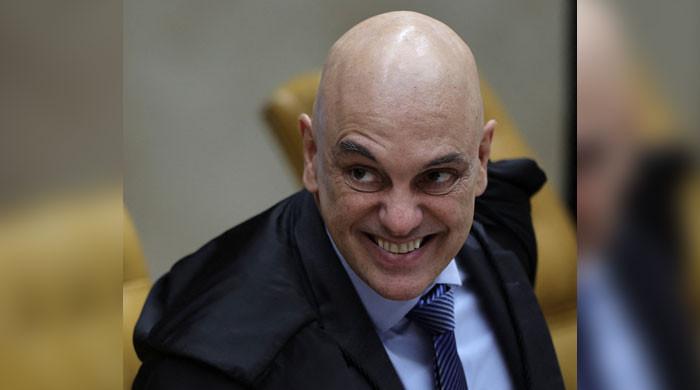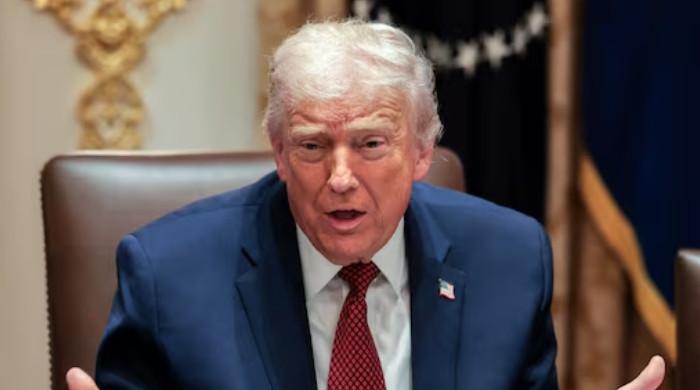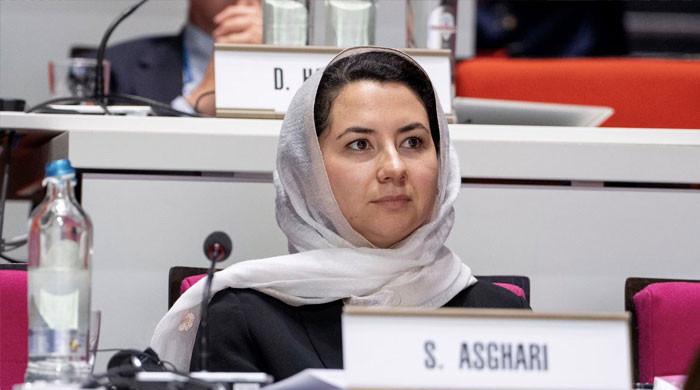2023 US elections: GOP candidates zero in on Gaza war, abortion, Trump in 3rd debate
Despite Trump not participating, his presence loomed large throughout the event
November 09, 2023

In the third Republican debate held in Miami, five presidential candidates took the stage, with one notable absence – Donald Trump, and discussed issues such as the Israel-Hamas war, and abortion rights and took jabs at each other on varying issues.
Trump-centric discussion
Despite Trump not participating, his presence loomed large throughout the event, shaping the discourse and framing the candidates' responses.
The first question posed to the candidates revolved around why voters should choose them over Donald Trump, highlighting the former president's continued influence on the race.
Governor Ron DeSantis criticised Trump for failing to deliver on campaign promises, referencing recent Democratic victories as evidence of Republican losses.
DeSantis said Mr Trump was "a very different guy from 2016" and had failed to explain what he said were broken campaign promises.
He then referenced Tuesday night's elections, which saw some major victories for Democrats. "Donald Trump said we'd get tired of winning," Mr DeSantis said. "I'm sick of Republicans losing."
Nikki Haley, former UN Ambassador, took a nuanced stance, acknowledging Trump's past relevance but suggesting he might not be the right candidate for the present. Chris Christie pointed to Trump's ongoing legal challenges, arguing that he should not be the nominee while dealing with legal issues.
However, South Carolina Senator Tim Scott and biotech entrepreneur Vivek Ramaswamy did not mention the former president in their answer.
Common ground on Israel-Hamas war
While Trump's influence dominated the discussion, the candidates found common ground on the issue of Israel. Each candidate expressed support for Israel in its conflict with Hamas, with some calling for a strong response against the Palestinian militant group. This unity on foreign policy showcased a shared stance within the Republican field.
However, the debate took a heated turn when Nikki Haley became the focal point of attacks. Vivek Ramaswamy criticised her foreign policy approach, dubbing her "the sharpest of the war hawks." The clash escalated, with Haley defending her position and dismissing Ramaswamy's critiques as baseless.
Abortion remains a divisive issue
The divisions among the candidates became more apparent when addressing abortion. With the Supreme Court rescinding the nationwide right to abortion, Republicans have faced challenges in navigating the issue.
While Haley emphasised the need for consensus within the party, Tim Scott advocated for a national 15-week limit on abortion, a proposal that garnered little support from the other candidates.
The debate highlighted the ongoing struggle among Republican candidates to consolidate the non-Trump vote. As Trump maintains a significant lead, the contenders sparred over their policy differences and sought to distinguish themselves within the crowded field.
In conclusion, the third Republican debate in Miami showcased the enduring influence of Donald Trump on the party and the challenges faced by candidates attempting to carve out their own identities.
The divisions on key issues like foreign policy and abortion underscored the internal dynamics at play within the Republican field as the race intensified leading up to the primaries.









